Our Work
RenewLV & Smart Growth - Keys to the Future of the Lehigh Valley
The overarching issue: according to the LVPC, another 145,000 people are projected to move to the Lehigh Valley by 2050 and now is the time to plan to accommodate for this influx in a sustainable way. Decisions that are made now about how the Lehigh Valley is developed will have a tremendous effect on the future prosperity of the region. A report by Smart Growth America, entitled “Measuring Sprawl and its Impact,” ranks the Lehigh Valley 70th out of the 83 areas with the fastest growing population around the nation. The U.S. Department of Agriculture ranked Pennsylvania fifth in the nation for development of non-federally protected lands between 1992 and 1997. In 2015 the RenewLV board of directors reset the organizational initiatives. The new initiatives are consistent with EnvisionLV sustainability plans developed in 2014:
- Farmland Preservation
- Food Sustainability
- Smart Transportation
RenewLV promotes Smart Growth through public engagement events and through education on vital regional topics. RenewLV provides leaders and residents with opportunities to learn from each other, develop strategies and collaborate to make better decisions collectively.
Past Events
“Save It or Pave It,” RenewLV’s Lunch Discussion on 2/26 at Northamton Community College’s Fowler Center
Is the loss of farmland in the Lehigh Valley and the development and the traffic it brings of deep concern to you?
If you answer, “yes!” then we hope you attended RenewLV’s “Save It or Pave It,” Lunch/Discussion on Friday, 2/26 from noon to 2:30 p.m. on the 6th floor of NCC’s Fowler Center on Bethlehem’s Southside.
What happened there?
1. We reviewed the regional goal for farmland preservation
The 2005 Lehigh Valley Comprehensive Plan states the regional goal for farmland preservation as “To preserve approximately 25 percent of the land in Lehigh and Northampton counties for agriculture.”
2. We asked: “Are we on track to meet this goal?”
3. We explored strategies to preserve farmland, asking: “What are the steps that citizens, local muncipalities and county leadership can take to preserve the agricultural character and economy of our region before it is lost to development?”
As we see development outpacing farmland preservation, we believe that efforts to preserve farmland at all levels of government need to be supported and increased. According to Buy Fresh Buy Local of the Greater Lehigh Valley’s Assessment Report: Lehigh Valley Local Food Economy, “the biggest challenge facing the Lehigh Valley local food economy is the loss of farmland (page 1).” Furthermore, “The local food economy generates $17 million in economic activity for the Lehigh Valley annually and has the potential to contribute much more.”
There are many benefits to farmland preservation:
- Farmland is the foundation of our local food and agricultural economy, preserving farmland is economic development
- The Lehigh Valley’s farms and farmland provide much of the beauty, character and identity of our region
- Protecting farmland helps to keep our property taxes down. Cows don’t go to school.
- Protected farmland and open space increases property values. The Lehigh Valley Planning Commission’s report,Return on the Environment came to that conclusion.
- Protected farmland has numerous environmental benefits. Water filtration, ground water recharge, air purification, flood control, wildlife habitat and carbon sequestration.
- There is strong landowner interest in farmland preservation.
Polls repeatedly show that the people of the Lehigh Valley overwhelmingly want their farmland and open space protected, yet why isn’t more being done?
If you missed the event, but are kicking yourself now and would like to be involved, please reach out to us. Many municipalities are working to implement various tools in the farmland preservation toolbox in their own municipality. We can put you in touch with other people who are doing the work. There is strength in numbers!
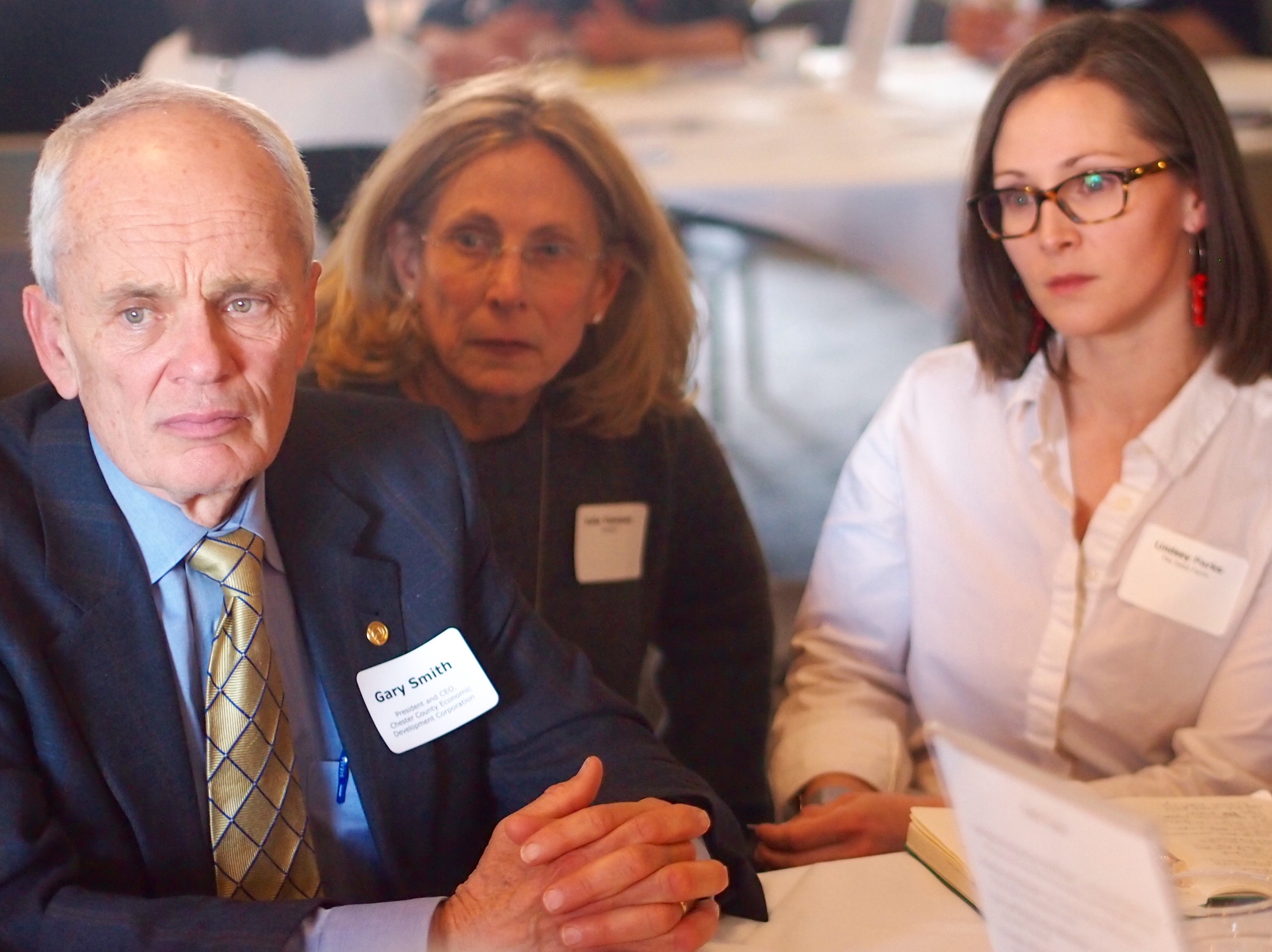
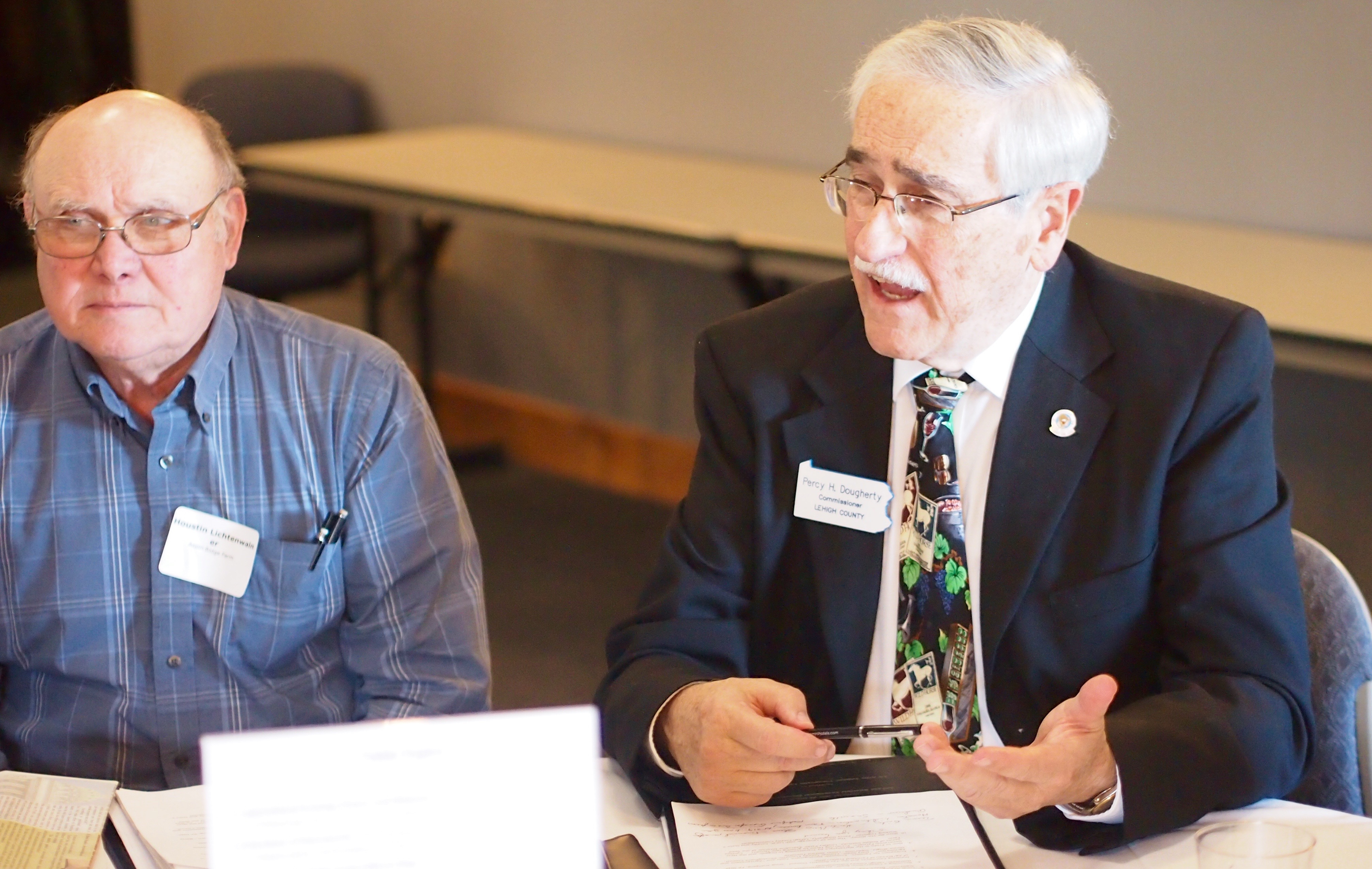
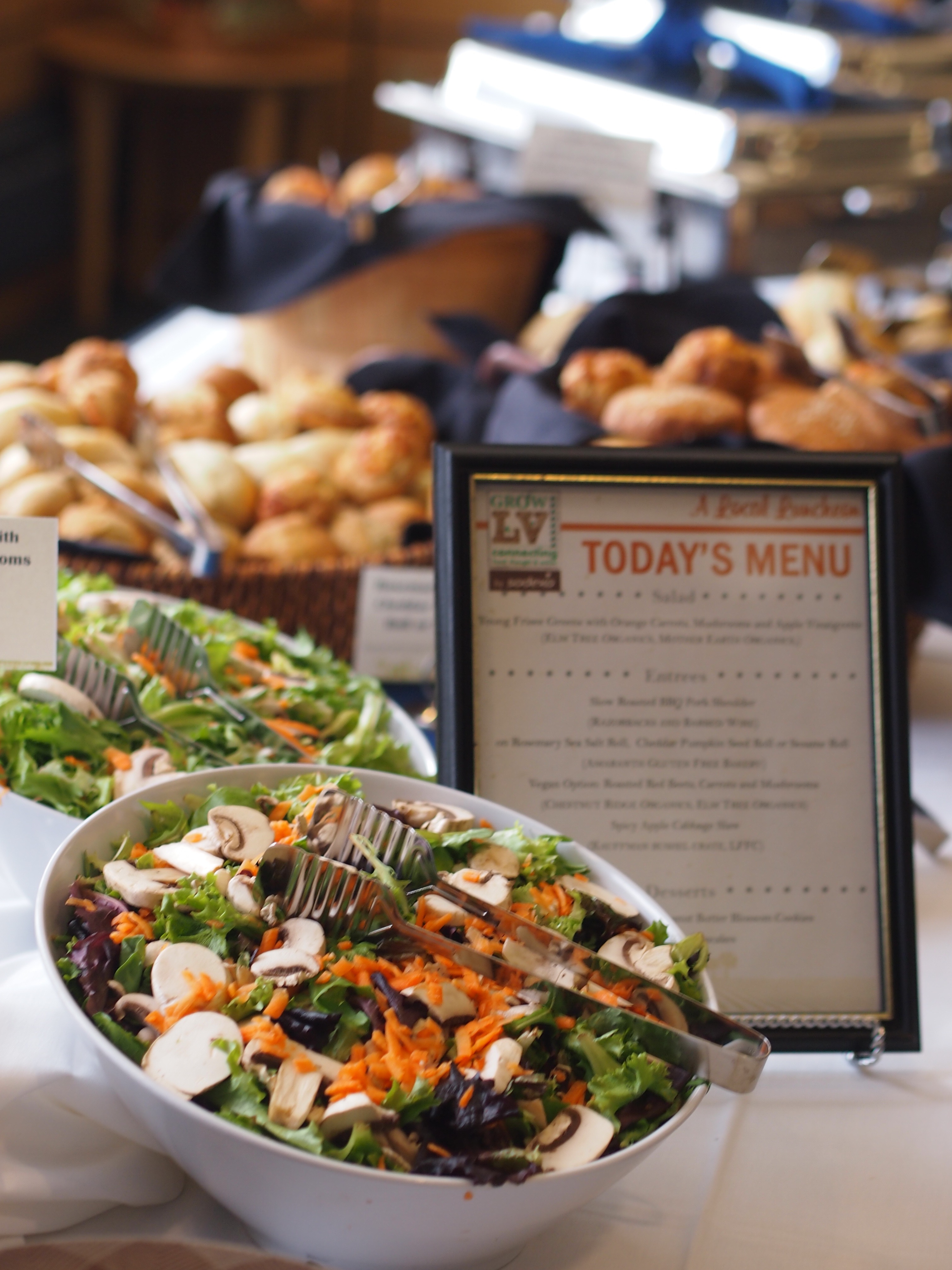
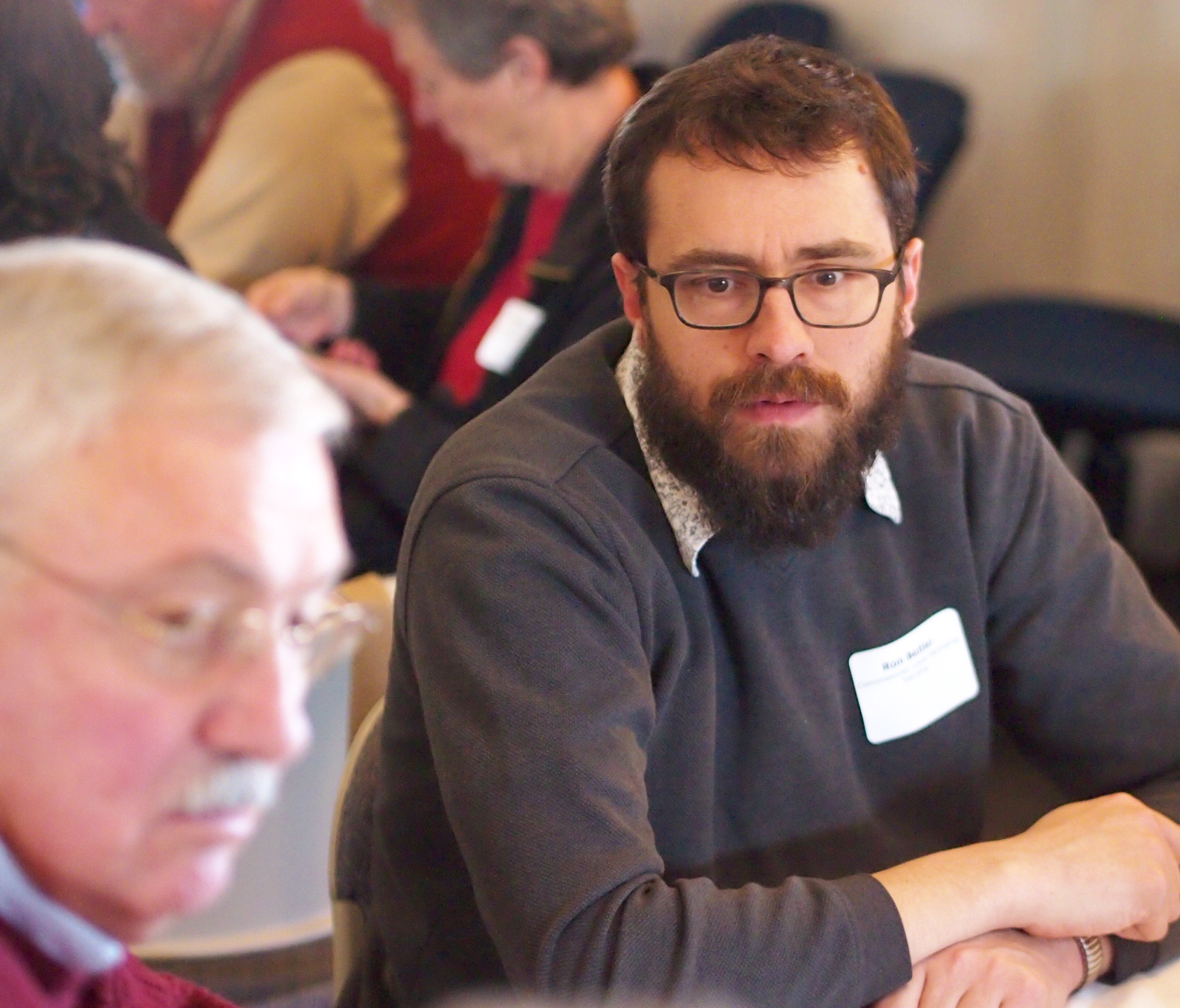
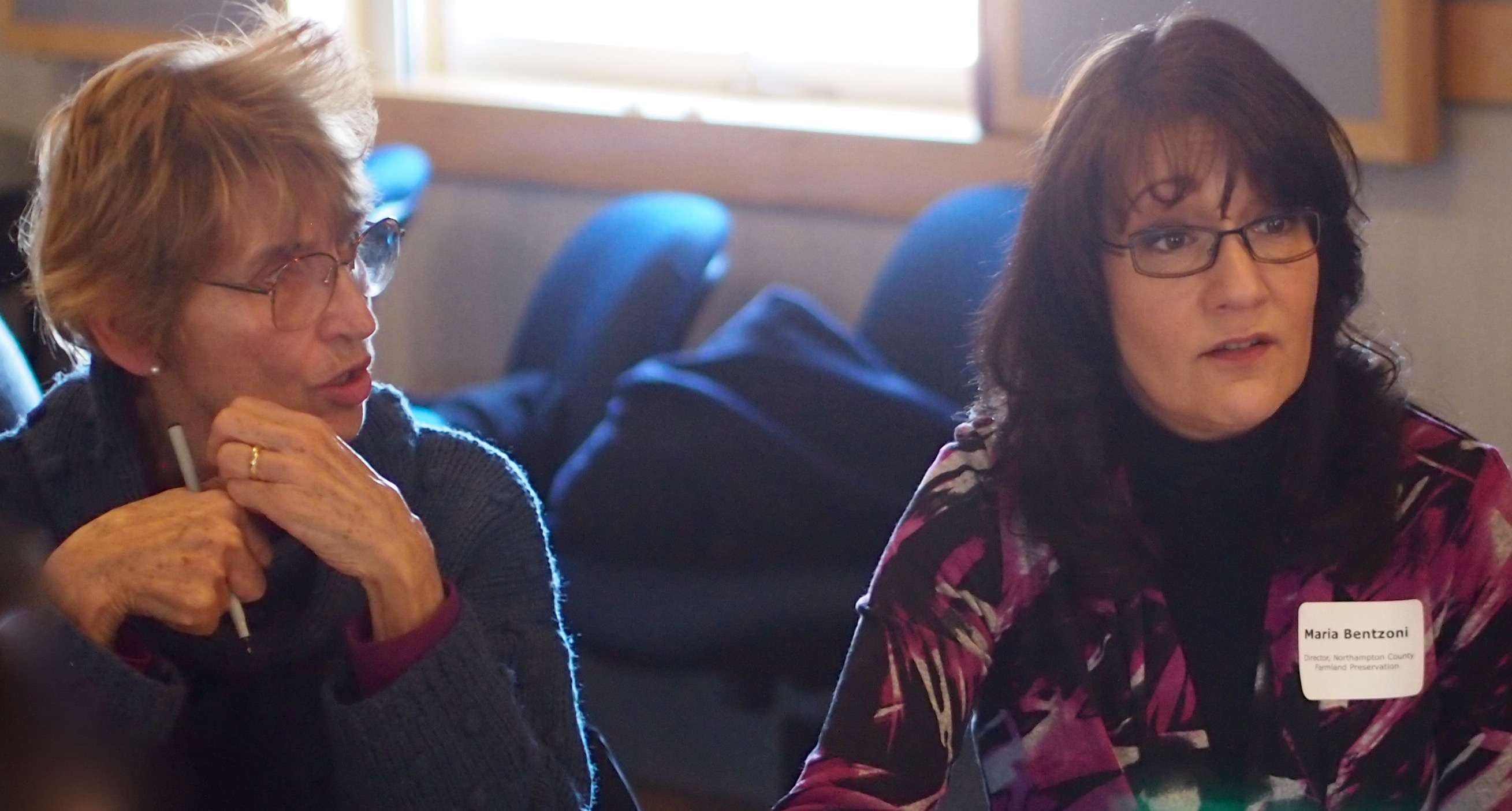
2015 Summit for Smart Growth and Sustainable Communities a Booming Success!
5 Things We Learned at the Summit for Smart Growth and Sustainable Communities
On Friday, December 4th, the Summit for Smart Growth and Sustainable Communities brought together almost 200 regional experts, community leaders, and interested citizens for an action-packed day of collaborative discussion to move from ideas to action on issues related to the region’s growth. Thank you to everyone who helped make the day a booming success!
The top five things we learned are:
1. Passenger Rail from the Lehigh Valley to New York City area is possible by 2020 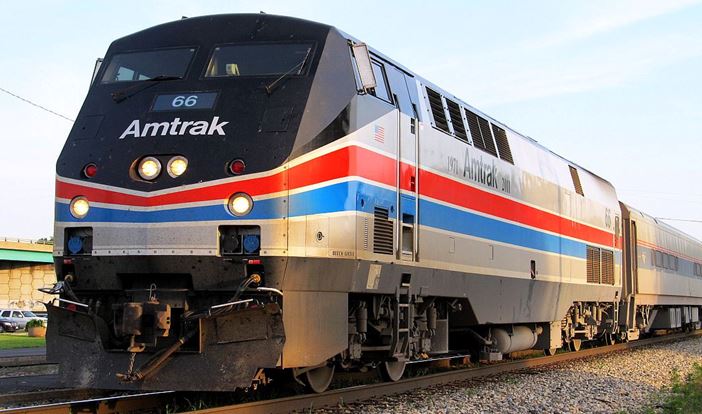
In the afternoon table talk sessions, we heard how roadblocks for smart transportation can be removed. Joe McHugh, senior vice president of government affairs and corporate communications with Amtrak, said a Lehigh Valley passenger rail service was something the region could make happen if it were to unite behind such a goal and “push it” through friends in high places. He alluded to Gov. Wolfe’s “pro-rail” sentiment as an asset in addressing the issue today.
McHugh suggested starting with a Lehigh Valley to New York City area route, citing the high number of bus trips between the areas daily.
Rail service in the Lehigh Valley isn’t something that is just on McHugh’s radar screen. He cited a 2010 PA State Rail Plan that identified the Lehigh Valley as a strategic freight corridor and the fact passenger rail in the eastern corridor of the state is thought of at Amtrak as a “Vision Project,” meaning it’s thought to have good potential but isn’t funded.
Speaking to the benefits of rail, McHugh stated, “Everywhere we go, economic development follows. If you are looking for a different way to revitalize a downtown, rail service brings it.”
Joe McHugh, Steve Biddle, Tim Fallon, Mayor Ed Palowski, Cameron McCoy, Adam Krom, and Joyce Marin discuss bringing passenger rail to the Lehigh Valley
2. Smart growth can generate more income for a municipality than conventional suburban development
Dense, mixed-use development generates more sustainable tax revenue for municipalities than large, single-use suburban developments, like warehouses and big-box stores.
Keynote Speaker Chuck Marohn, founder and president of Strong Towns, calls the tendency for municipalities to keep expanding from their traditional downtown footprints using a conventional suburban development style, the Growth Ponzi Scheme.
Marohn told Summit attendees that our ever-increasing rate of growth is unproductive and has buried us in financial liabilities. He said this “post World War II type of growth does not create real wealth – rather the illusion of wealth.” He recommends returning to a traditional pattern of development – the downtown cityscape that formed when long ago people started to build and populate communities.
RenewLV Board member and Lower Macungie Township Commissioner, Ron Beitler, used a local example to describe the development “scheme.” He referenced an historic home, located in Lower Macungie Township, that was renovated into office space and he compared it to a warehouse on the same amount of township land. The home, located in the center of the township at a busy intersection, generates more income per acre than does the large warehouse. The lesson – investing in existing infrastructure generates more money for municipalities.
3. Farming is business and supporting and preserving it promotes economic development and preserves farmland
Keynote speaker Judy Wicks, author, activist and entrepreneur and local economy pioneer, illustrated how using locally produced products that are high quality, healthy and responsibly produced, can sustain a successful business and preserve farmland.
In a socially responsible model, businesses are more than just ways to generate profit. Profits can also improve employees’ standard of living and be directed toward community building activities.
Gary Smith, CEO of Chester County Economic Development Corporation, described the benefits of looking at farms as business. In Chester County he directs economic development incentives and financing to farm business. This creates jobs for Chester County while preserving farmland.
Julie Thomases, Forest Wessner, Jr., Maria Bentzoni, Percy Dougherty and Jeff Zehr discuss farmland preservation in afternoon table discussions
4. New Urbanist/Smart Growth developments are built in the Lehigh Valley
Andy Twiggar, co-founder and principal of Dunn Twiggar Company, LLC, described their plans for the Waterfront project along the banks of the Lehigh Valley River. He showed the drone masterplan of the neighborhood and two hundred Summit attendees joined him on a “magic carpet ride” through the streets of Allentown’s newest neighborhood. If you want to take the ride, click here.
This brand new Main Street - with retail, office, residential and recreation space - will be built along the Lehigh River in Allentown just south of the new American Parkway Bridge near the America on Wheels Museum.
The finished project will include 12 new buildings constructed so that they create a dynamic, urban, mixed-use landscape for tenants (retail and restaurants), residents and visitors. The main street, Waterfront Drive, will run parallel to the new River Walk and be near two existing city streets – Allen and Furnace.
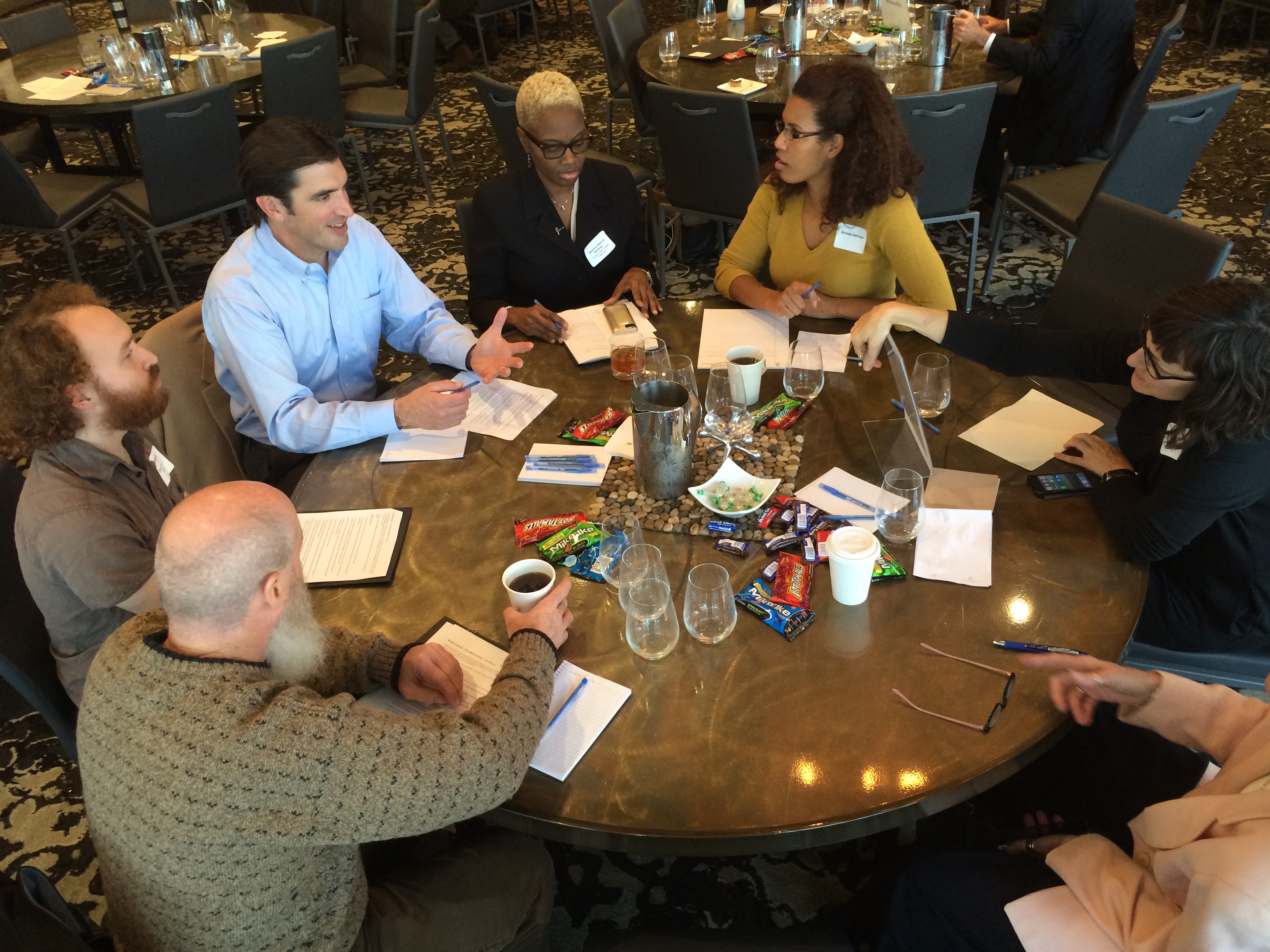
5. Sustaining our local food economy requires creation of one or more local food hubs
Jon Middleton of Sodexo and the Lehigh Valley Food Policy Council’s Founders Team, shared his wisdom and big vision for expanding the local food economy through the creation of local food hub. His vision includes five functions:
- Aggregation – a place, partially refrigerated, where local farmers can bring their produce
- Distribution - a central procurement officer for institutional purchasers to contact regarding the availability of local product and trucks and drivers available to deliver those products in the Lehigh Valley
- Shared use commercial kitchen incubator-A legal space for cooking and cleanup that food and beverage entrepreneurs can rent by the hour as they grow their businesses
- Manufacturing – a place to scale-up food and beverage production with support such as marketing and packaging
- Restaurant and retail – a place that allows the public to taste and purchase local products
The creation of a food hub will help us grow our local food economy and preserve farms in the process. Jon Middleton projects that if his company sourced all of its product locally, doing so would infuse 200 million dollars into Lehigh Valley’s economy.
To capitalize on the momentum of the day and execute these great ideas, we need you. Attendees participated in the creation of action plans on these and related ideas. It’s not too late for you to be involved. If you are interested in seeing these ideas happen, we would love to get you involved. Please contact us and we will connect you to the right people, committee, or resource.
Left to Right: Dennis Benner, Gary Smith, Rev. Greg Edwards, David Jaindl, and Percy Dougherty answer questions during the first panel discussion
Packed Room for 2015 Summit for Smart Growth and Sustainable Communities
Growing the Local Food Economy
Join the New Food Revolution: Focus on Urban Agriculture, Friday, May 29th 2015 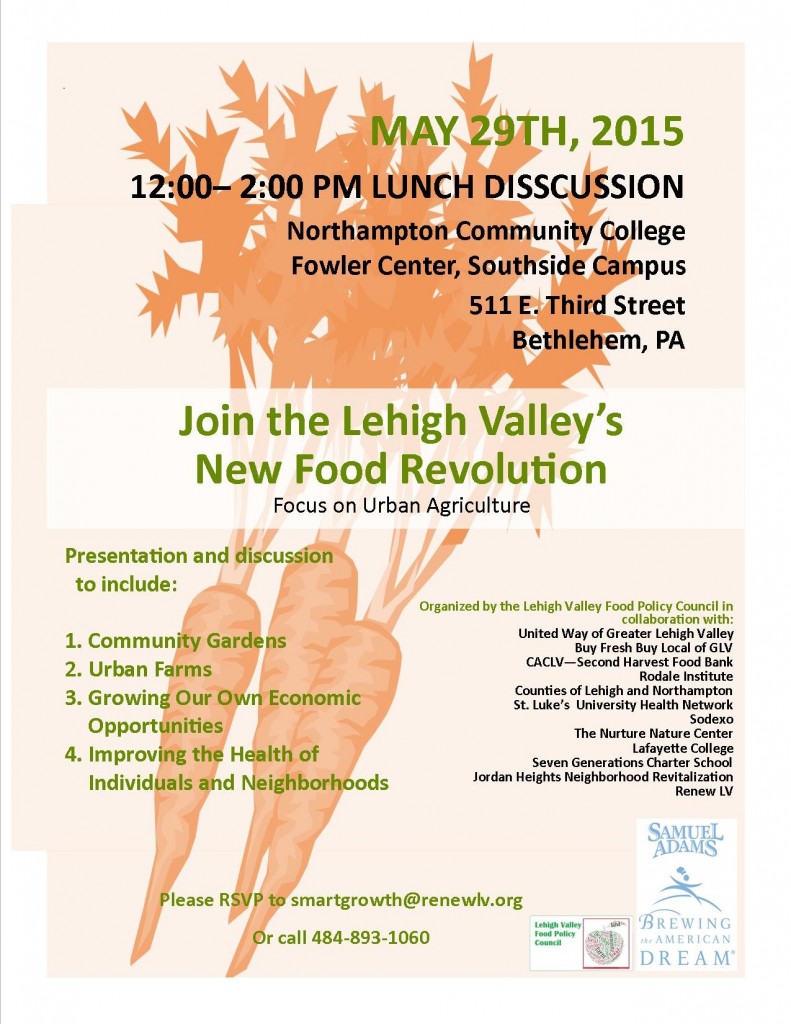 RSVP by sending an email to: smartgrowth@renewlv.org
RSVP by sending an email to: smartgrowth@renewlv.org
2014 Summit for Smart Growth and Sustainable Communities
At this year’s Summit for Smart Growth at Hotel Bethlehem, we listened to and learned from speakers and panel discussions, and then later broke off into smaller group discussions. Even after a long day, around 100 people stayed to participate in these “Table Talks”. Attached below are some of the notes that were compiled from these small group tables. We would like to thank everyone again and hope that those who stayed enjoyed, learned from and were inspired by this experience.
Please take a few minutes to tell us what you though of the Summit for Smart Growth and Sustainable Communities
- Survey Monkey
Envision Lehigh Valley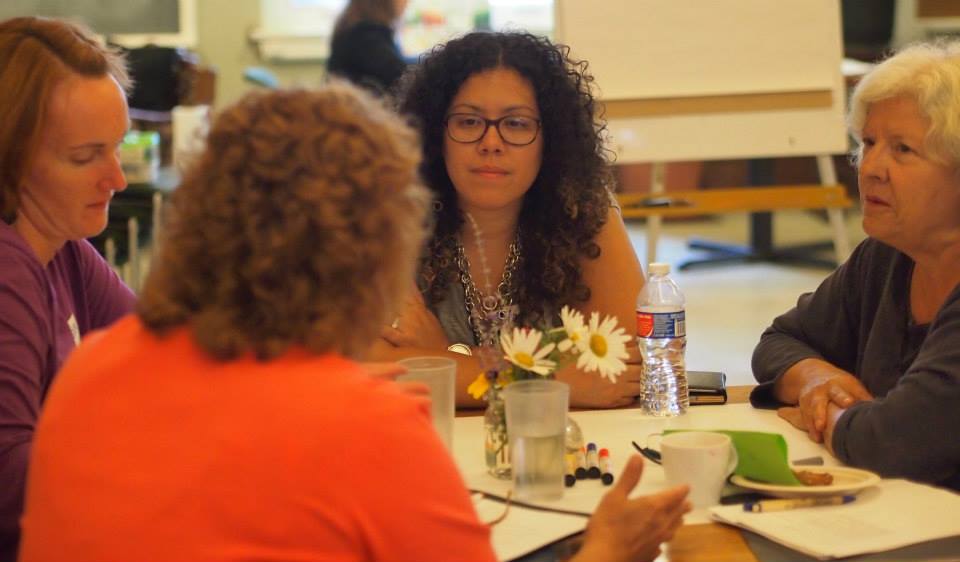
- Public outreach effort designed to engage citizens of Lehigh and Northampton Counties to create a truly sustainable Lehigh Valley formerly ended 12/31/14 with the end of the HUD Sustainability Planning Grant that funded the effort.
- RenewLV led public outreach effort by coordinating public meetings, website development, social media outlets, and media relations
- RenewLV included diverse voices from across the Lehigh Valley and recorded the perspectives of the community members who were engaged.
- Visit www.envisionlehighvalley.com for more details and to review copies of the reports the effort generated
- The food and transportation plans from the EnvisionLV process have informed RenewLV’s 2015 Strategic Initiatives.
For the latest updates on RenewLV’s work, visit our E-Newsletter Blast Archives.
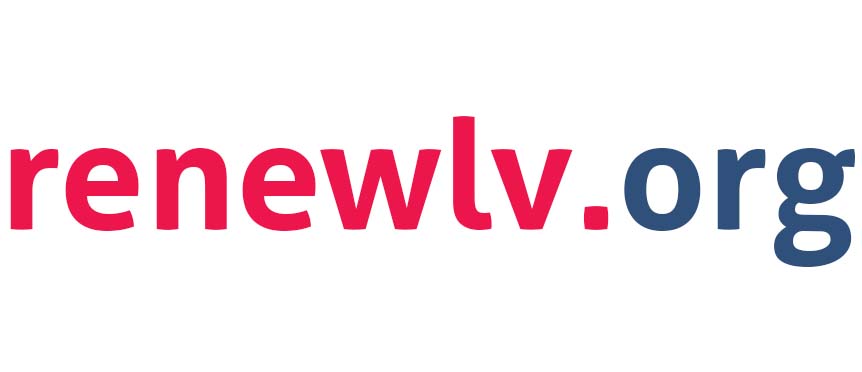
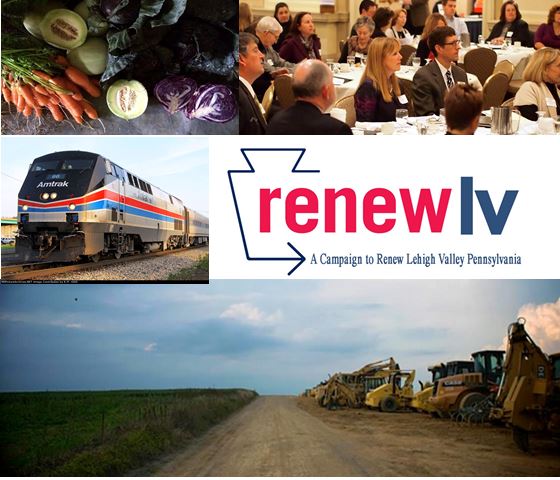
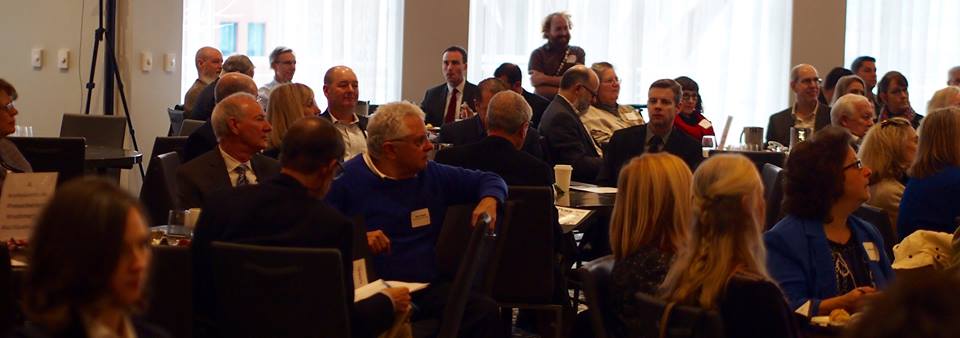

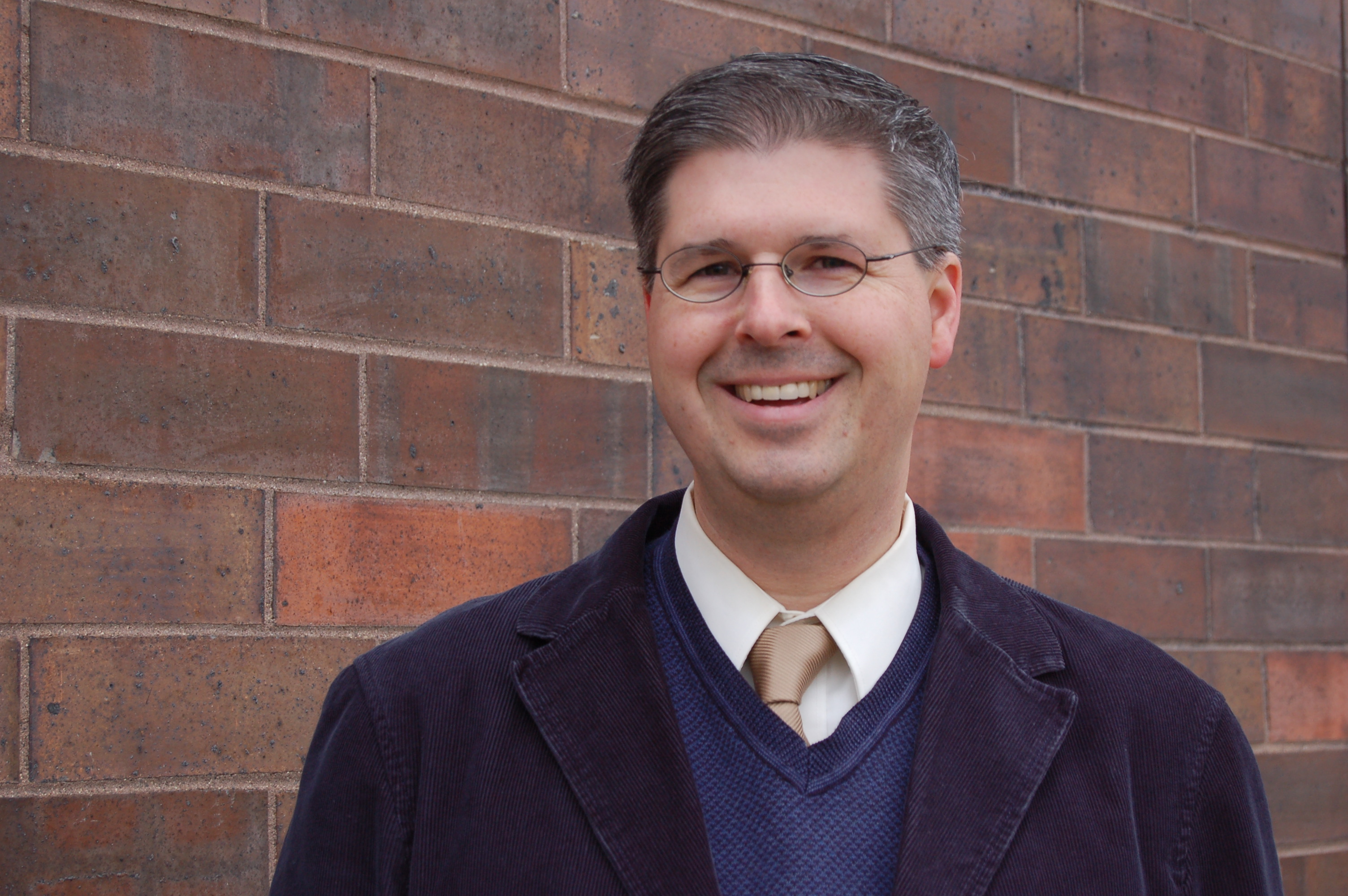
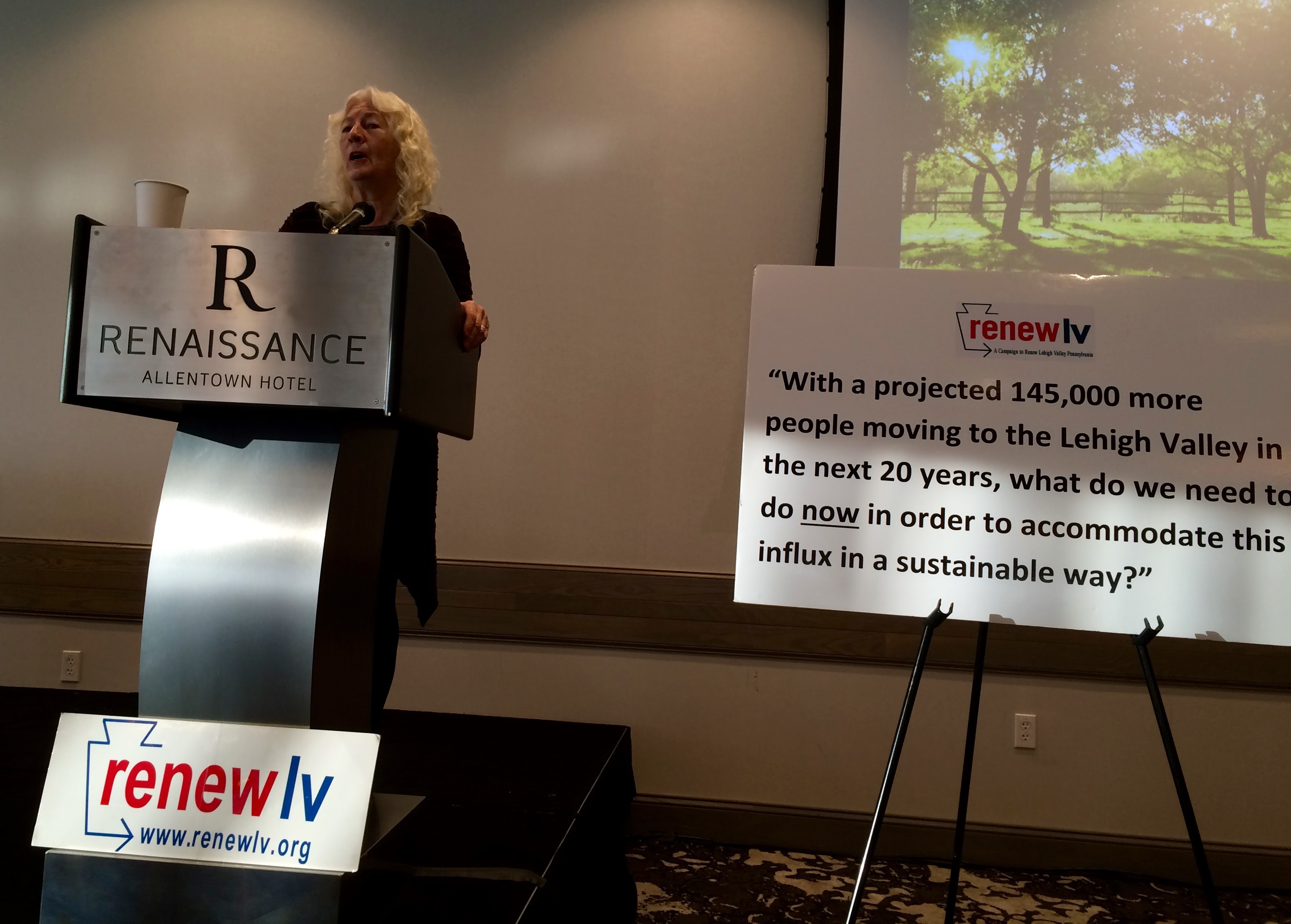
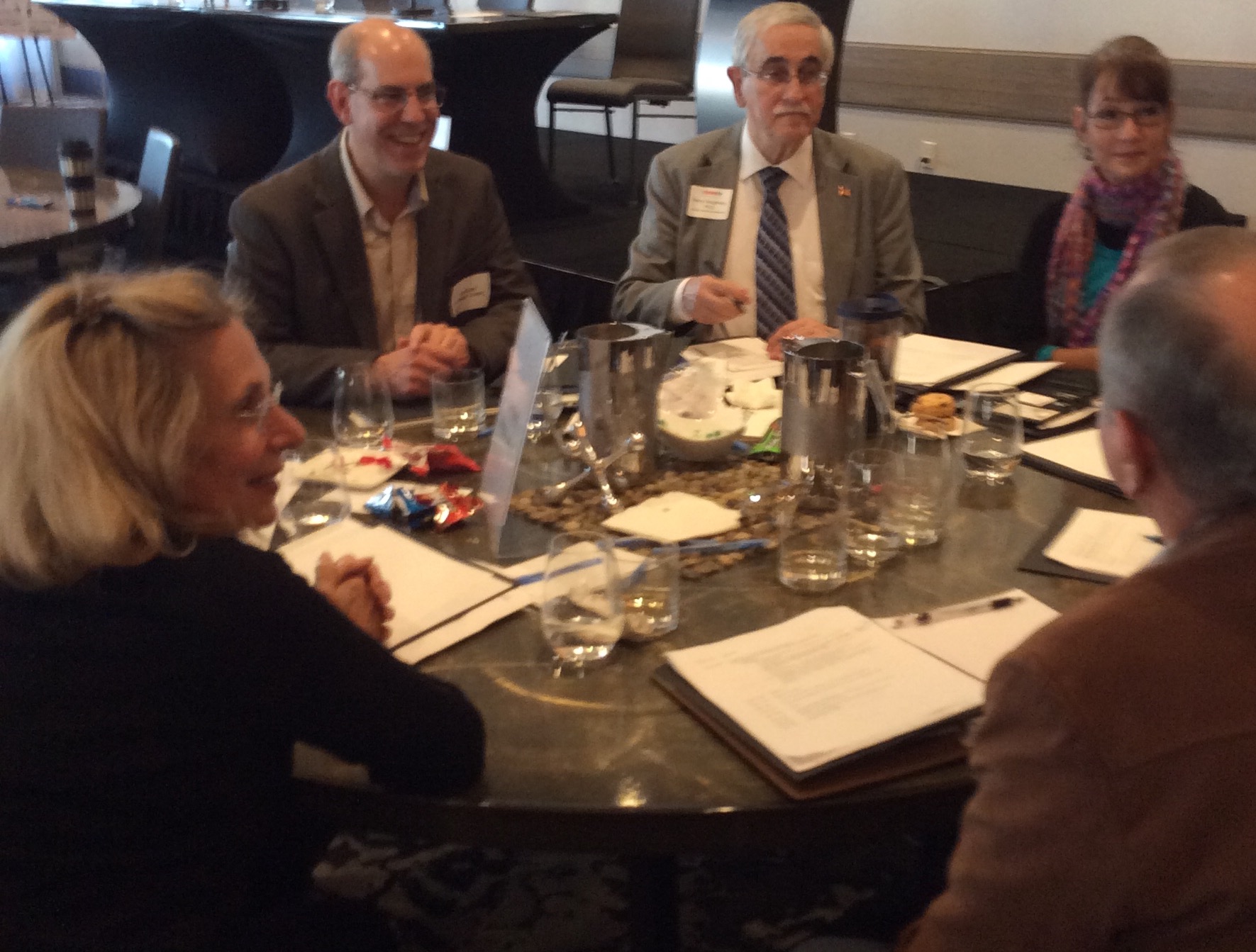



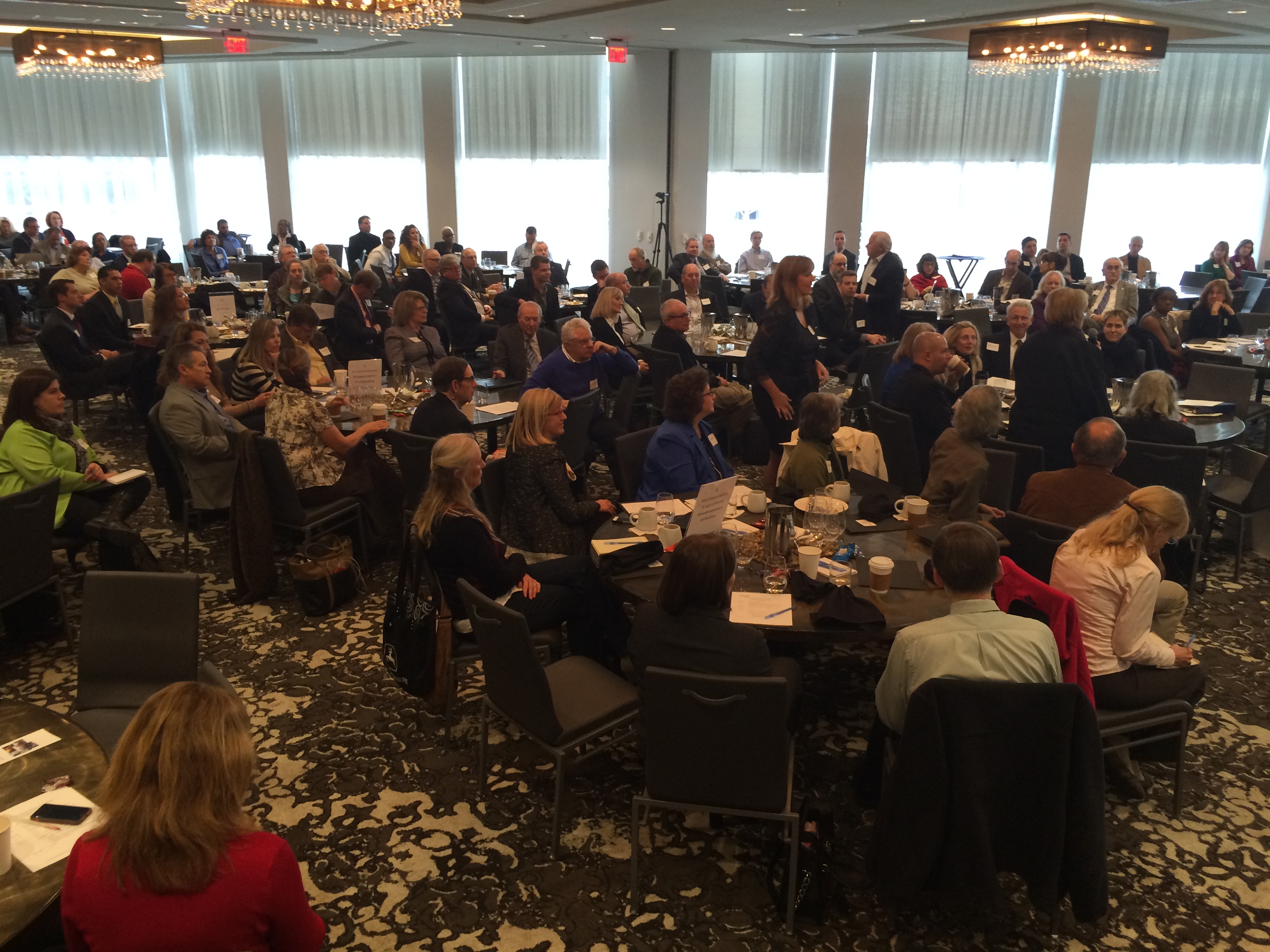
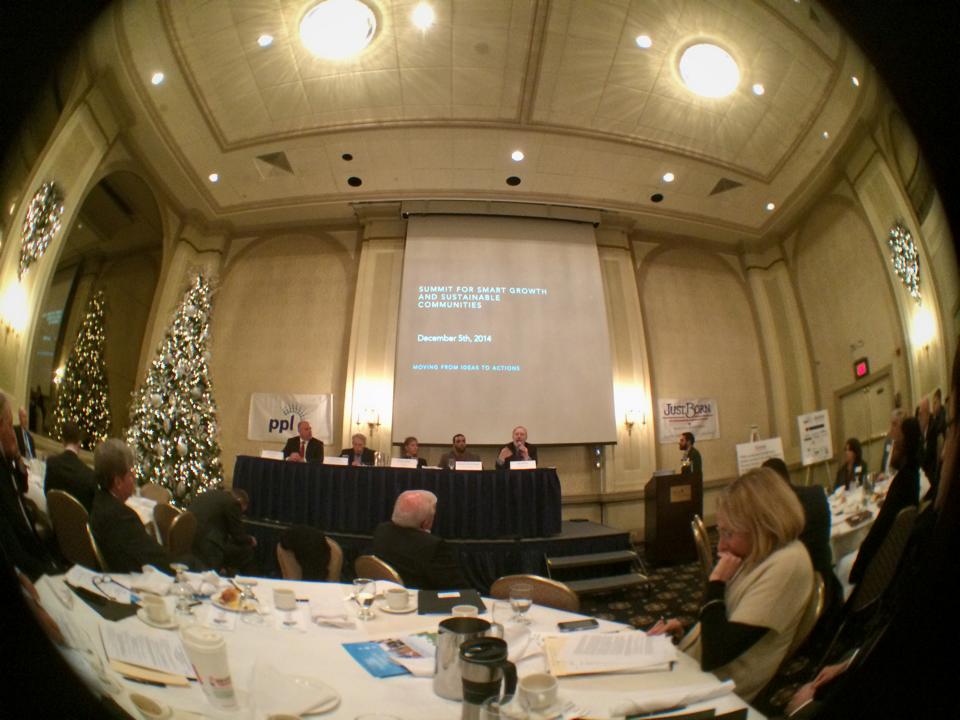

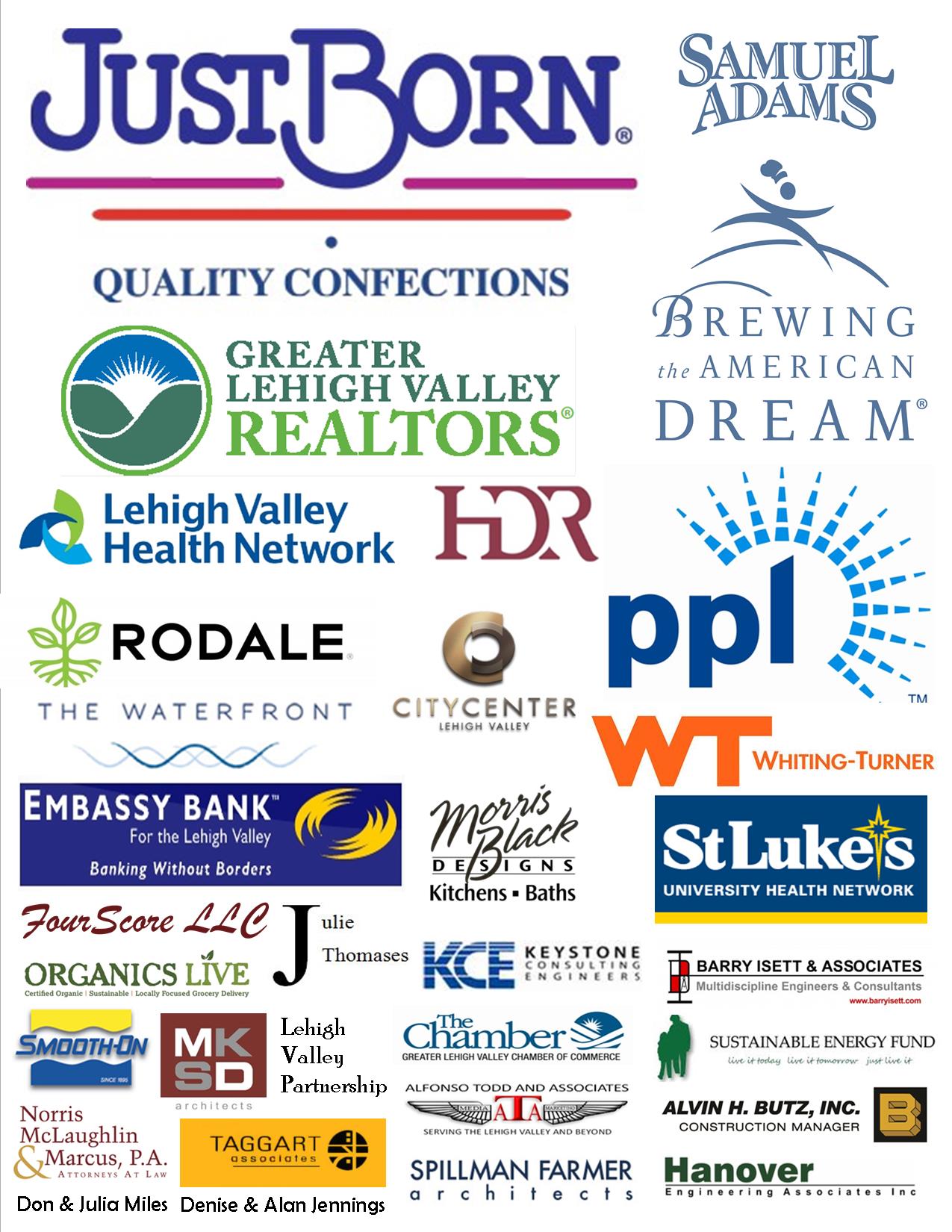
Leave a comment